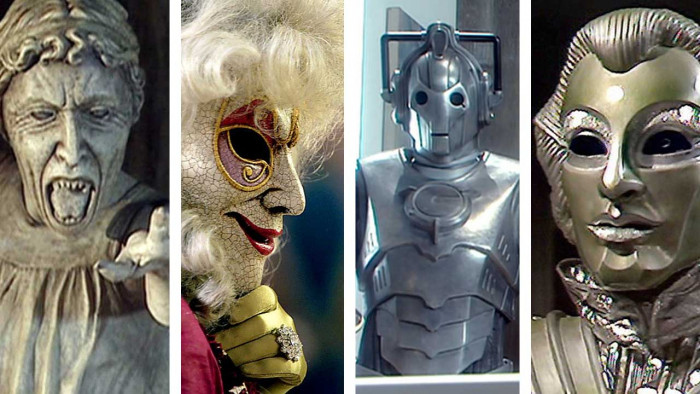Owners of 'best pub in the UK' on how to takeover a boozer without f***ing off the locals
Owners of 'best pub in the UK' on how to takeover a boozer without f***ing off the locals


“We didn’t ask for it and weren’t looking for it, and we’re not worried and we won’t change much,” says Jon Rotheram, co-chef and co-owner of The Marksman on London’s Hackney Road, voted Michelin’s Pub of the Year 2017 this past weekend. “When people come in, we want them to sit down and eat but we still want it to feel like it’s a pub.”
And it does. The clientele that prop up the bar are locals. Male, quiet, fifty, unabashedly London, occasionally making pleasant small-talk with each other but not arsed either way, really. There’s a comfort, a relaxation. None of the tension of other pubs in the area - where generations vie for power from one of the side of the bar to the other.
“Where I grew up in Essex,” says Rotheram, “I loved the village pubs - I loved the community atmosphere it used to bring. In London, pubs have lost a bit of that. One thing that was key for us was creating that community. You see articles about people opening pubs and saying “I wanna keep the locals” and then they just don’t. If you want the locals, you keep the beer on that they’re drinking” - a secret barrel sits behind the bar and off the main menu, says a regular - “and keep it at a price that they can afford. It’s a conscious effort. We wanted to keep these people here, we wanted to keep a sense of what The Marksman is.”
The pleasantly brusque staff remember your name and your drink at the bar. The tables are a mixture of the reserved and the unreservable, maintaining that important allure for off-the-street punters. “You know what it’s like, sometimes, when you drink around here,” says Rotheram. “It can be hard to get the attention of a barman and sometimes when you do they just look at you like “Oh my god, I have to serve you?” It’s like they’re too good for you".
The stereo plays ‘Green Onions’ by Booker T & The MGs softly over the low murmur of the locals, a bloke crunches his way through a bowl of crackling nearby. This is a talking pub. It reminds me of being a kid.
“We wanted to make sure that this pub was like how you think of bars in New York,” adds the chef. “You walk in and you get recognised, or at least acknowledged, by the people in there. Just a smile and a quick “I got you”. We wanted to make everyone feel appreciated, even down to saying thank you to people when they leave. If they’ve just spent money with you, you should be thanking them."
I order the beef and barley bun with sweet horseradish cream, some pig skins - big, fluffy shards of smoky crackling - with cod roe butter and another pint of London Lager. You can always judge a good food pub by their snacks, I think. It’s the little things.
Rotheram and his partner Tom Harris are of restaurant backgrounds, making their names as chefs at the well-regarded Saint John in Smithfield, but they wanted a change for their first project: “The model was always: you have a bar in a restaurant. And we were like, just like ‘Maybe we should look at pubs?’ They’ve got bars in them already and they have a culture. We’ve always drunk around here, and we’ve always wanted to have somewhere that had an attitude as to how you should serve drinks. And then we just fell in love with this place…”
The pub itself is a beauty: old-school, unfussy, dark, warm, with lots of levels for different experiences - ground-floor is the pub proper, one up is the dining room, and there’s a roof terrace out there too. Outside is wrought-iron furniture by the road, a hub for drinkers in big coats. The whole place feels like it’s been restored with love.
“I’d never wanna change a pub’s name and I’d never wanna get rid of the facade of what it is,” says Rotheram. “People walk in and rip up these two-hundred year old bars and then move the bar ninety-degrees, just to show they’ve done something to it. Why would you do that? There’s no point in that.”
As the chef notes, London is intrinsically linked to pub culture. They were the axis around which working class communities revolved. I come from a family of publicans, my parents families ran pubs all over East London in the sixties, seventies, eighties. My childhood was spent in many a smoky pub learning how to make friends and play pool. Some of my earliest memories are of my dad carrying me in his arms, sitting me on a rosewood bar, and introducing me to his mates. As I got older, you’d go in and you’d know everyone - but times change.
“It’s important we keep that tradition,” says Rotheram, “but pubs need to move and keep up to date. What would’ve worked twenty years ago on this road would’ve been just being a proper old boozer just serving beer - pubs can’t afford to do that anymore."

“When we started, the locals were worried,” he adds. “There were all sorts of stories: first of all they said it was going to be a Jamie Oliver pub, because I used to work with him and he’s one of my mates. Then they said we were going to turn it into a pizzeria… Before we walked through the door, everyone had an opinion of what we were gonna do. We had to get people back onside. When we opened the pub, we just opened it up to everyone.”
Beer prices aren’t cheap but they’re reasonable for the area. Both the pig skins and especially the barley bun are delicious and cost a fiver a pop for a sizeable plate. Main courses vary from about a tenner to a jumbo thirty-quid pie for two. These are gourmet dinners that you won’t regret, but the word ‘gentrification’ will never be far away from anywhere that dares to do too much.
Especially in Tower Hamlets, the borough in which The Marksman sits, which boasts some of the highest paid workers in the country, but also has a high rates of mortality and the second highest unemployment rate in London - there is a need for delicacy.
“The culture of drinking around here, there are guys who hang around - some can tell me how this road has changed in the last forty years - but it’s not just about the locals,” says Rotheram. “East London’s been hit hard by gentrification that, but anything you’re bringing to a community that’s positive is good. I used to live around here and you’d have to cycle all the way from Homerton to Liverpool Street to get a half-decent cup of coffee. Now there’s a bunch of ‘em. There’s fresh bakeries. Butchers and fishmongers that were dead. They were dying on their arse and nobody was going to them, but now they’re thriving. Gentrification is bad when it pushes people out - you don’t want to do that, but it’s such a tricky word - London is such a metropolitan city, you need to offer something for everyone."
Latest
Related Reviews and Shortlists


The best Doctor Who episodes, ranked








